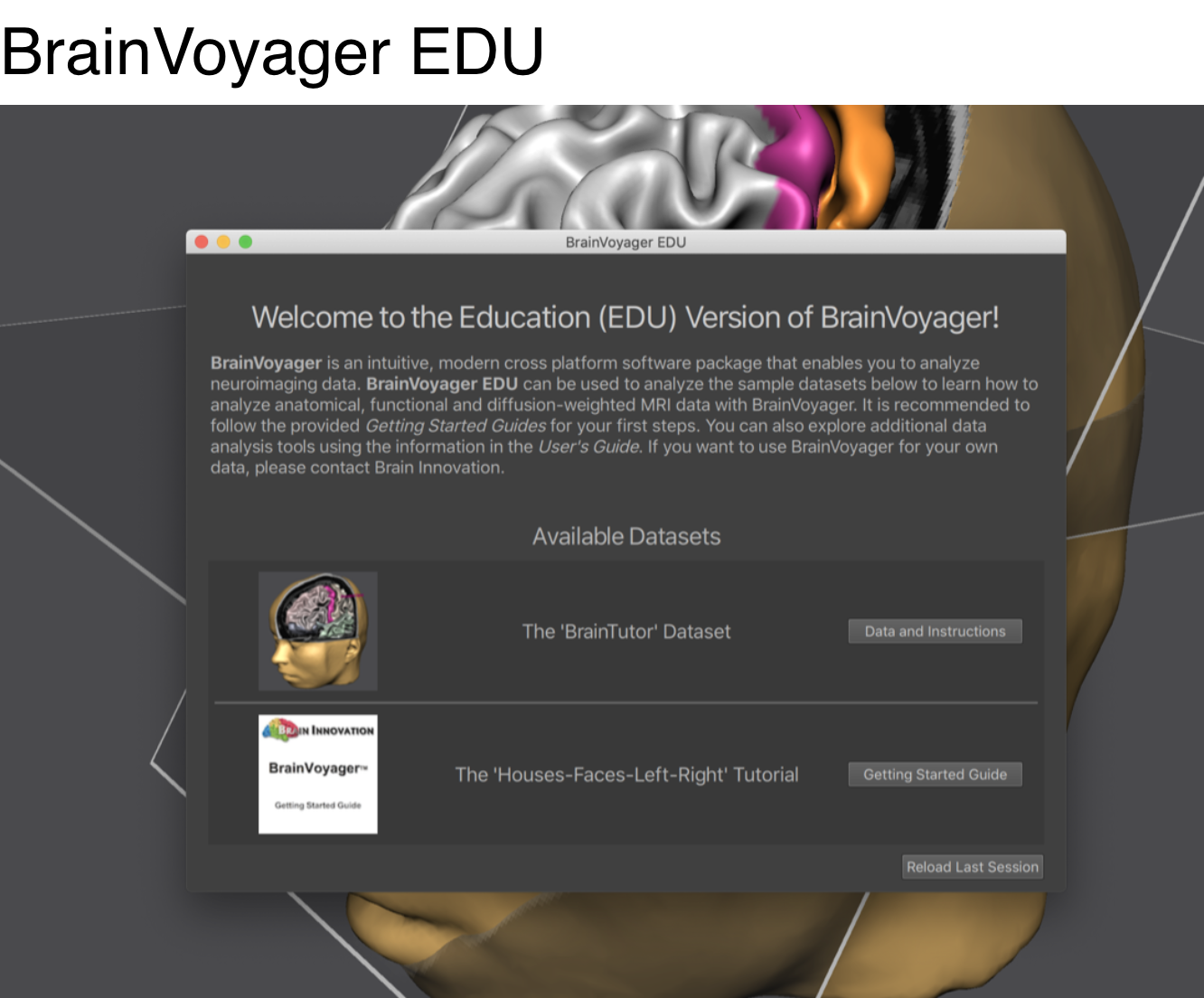What is NeWBI 4 fMRI?
NeWBI4fMRI is a long-term initiative to develop and provide open-access data and tutorials for functional magnetic resonance imaging (fMRI) research. NeWBI provides a set of hands-on tutorials that utilize data optimized for teaching fMRI design and analysis. The teaching approach differs from the traditional way that fMRI is taught.
NeWBI4fMRI is a companion site to the popular site, www.fmri4newbies.com
History
The initiative stems from nearly two decades of teaching of Psychology 9223: Neuroimaging of Cognition by Prof. Jody Culham at Western University, which formed the basis for www.fmri4newbies.com. These resources have become very popular with over 10,000 hits per year. Over the years, the course incorporated hands-on tutorials to teach crucial principles; however, the tutorials were based on a hodgepodge of extant data and, frankly, were a bit of a mess.
Starting in 2017, funding from a $66M BrainsCAN grant from the Canada First Research Excellence Fund to Western University was committed to enable our team to take fMRI teaching “to the next level”. In 2017-19, BrainsCAN funded data collection and development of these tutorials. The main experiment was designed to span teaching purposes (including block designs and event-related designs). Additional data were collected to illustrate the consequences of alternative, sometimes suboptimal, designs and data quality issues.
BrainVoyager EDU
Tutorials utilize a free educational version of BrainVoyager software, BrainVoyager EDU, developed by Rainer Goebel at Maastricht University in the Netherlands and his company, Brain Innovation. BrainVoyager EDU has the full capabilities of BrainVoyager, but only works with certain data sets. BrainVoyager was chosen because it provides an intuitive graphical user interface with excellent visualization that works across platforms (Mac, PC).
Other Platforms
Although the first release of the tutorials is based on Brain Voyager EDU, the emphasis is on teaching concepts that generalize across software platforms (such as the logic of the general linear model) rather than their specific implementation in BrainVoyager.
We have gotten the data into cross-platform formats (BIDS and NIfTI). so over time, we hope to get versions of the tutorials for all major neuroimaging platforms (FSL, SPM, AFNI). If you would be interested in contributing to this initiative for your own course, please contact Jody Culham.
Acknowledgments
We gratefully acknowledge funding from the Canada First Research Excellence Fund (CFREF) via Western’s BrainsCAN grant. We appreciate the support of the BrainsCAN executive committee and staff.
The first versions of the tutorials were developed by Ethan Jackson, then a Western Computer Science PhD student, in consultation with Jody Culham. Ethan contributed many crucial ideas, including the widgets employed on the sited. In 2019, Nicola Popp, a Western Neuroscience PhD student, was a teaching assistant who helped improve the tutorials and website. In 2020, Rebekka Lagacé-Cusiac is the teaching assistant and has been improving tutorials and adding interactive "widgets”.
We gratefully acknowledge support from the BrainVoyager development team, particularly Rainer Goebel and Armin Heinecke.
Thanks also go to Western’s Psychology Department, within the Faculty of Social Science, for flexibility in teaching assignments that provided time to develop these resources and for supporting graduate teaching assistants who contributed.
Programmer Kevin Stubbs provided invaluable help in data processing and troubleshooting. MRI Facility Manager Joe Gati, MR technologist Scott Charlton, and Senior MRI Research Technologist Trevor Szekeres advised on data collection. Tutorial development benefitted from contributions from earlier ad hoc tutorials developed by previous Psychology 9223 teaching assistants: Ken Valyear, Samantha Podrabarec, Scott Macdonald, and Ed O’Neil.
The development of NeWBI has benefitted from example tutorials developed by students in Psychology 9223 over several years. It has also been improved through the beta testing and feedback from these students.
Ongoing and Future Directions
1) Due to COVID-19, Psychology 9223 went fully online in Fall 2020. The lectures are being restructured to place earlier and stronger emphasis on statistical analysis. Lectures are being recorded for online teaching and a “flipped classroom” approach. These lectures can be made available upon request. In future, more polished prerecorded lectures will be releases.
2) In the Winter term of 2021-22 (Jan.-Apr. 2022), I will be developing a new undergraduate course on fMRI that will use these materials and be simplified compared to the grad course.
3) Rainer Goebel and Jody Culham have signed a contract with Psychology Press to produce a textbook aimed at the level of senior undergraduates and graduate students learning fMRI. Like the course and this website, the textbook will be built upon fundamentals of data analysis and the general linear model. Drafts of chapters are nearly ready and we would appreciate feedback from anyone who might be willing to “beta test” them.
4) Students in Psychology 9223 will continue to develop new tutorials, particularly for advanced concepts. In addition, we hope that some students will help us convert existing tutorials to other common software packages (particularly FSL, SPM, and AFNI).
5) We will reach out to others who are involved in fMRI teaching to expand and popularize the initiative.
Can you help?
If you have suggestions about how to improve the tutorials, convert tutorials to other software packages, provide feedback on textbook drafts and/or expand the initiative, please contact Jody Culham: jculham <at> uwo.ca


